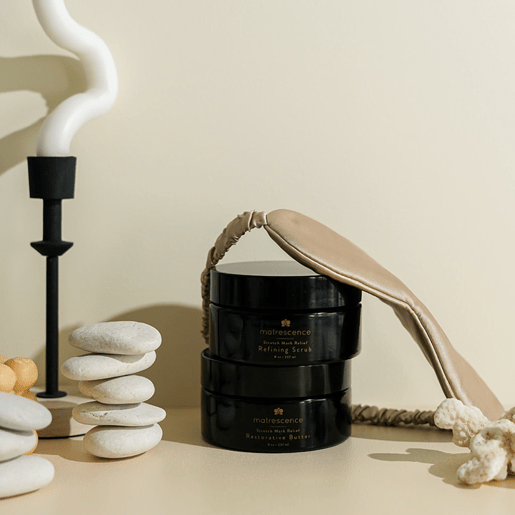Childbirth is a significant and transformative experience, and having the right support can make all the difference. The use of a doula is a growing resource in maternal care, but many expectant moms still don’t know exactly how a doula can support and advocate for the pregnant mama - and why you might want to consider using one during your pregnancy.
What is a Doula?
A doula is a trained professional who provides continuous physical, emotional, and informational support to a mother before, during, and shortly after childbirth. Unlike medical staff, doulas do not perform clinical tasks; their primary focus is on supporting the mother and her family. There are different types of doulas to suit various needs, including birth doulas, postpartum doulas, and specialized doulas who have additional training to support specific circumstances, such as high-risk pregnancies or those experiencing loss.
The role of a doula includes emotional, physical, and informational support, as well as advocacy for the mother:.
- Doulas provide continuous emotional support during labor and delivery. This can include offering words of encouragement, comfort, and reassurance when the mother needs it most. Their calming presence helps reduce stress and anxiety, creating a more positive birthing environment.
- Doulas assist with various physical comfort measures. They can help with techniques such as massage, positioning, and breathing exercises, all of which can make labor more manageable. Their knowledge of different labor positions and pain relief methods can facilitate a smoother and often shorter labor experience.
- Doulas provide mamas with evidence-based information about childbirth and postpartum care. They help parents understand their options and make informed decisions. Whether it's explaining medical procedures or answering questions about the birthing process, doulas empower mothers with the knowledge they need.
- Doulas act as advocates for the mother's wishes and preferences. They help ensure that the mother's voice is heard by the medical staff and that her birth plan is respected as much as possible. This advocacy helps bridge communication between the mother and healthcare providers, fostering a collaborative and respectful environment.

Why Should You Add a Doula to Your Pregnancy and Postpartum Journey?
In addition to the emotional and physical benefits listed above, using a doula during pregnancy and postpartum gives you a level of personalized care, as well as improved birth outcomes.
One of the primary benefits of having a doula is the personalized attention and continuous support they provide. Unlike medical staff, who may have to divide their time among multiple patients, a doula is dedicated solely to the mother’s needs, ensuring that she feels supported and cared for throughout her birthing experience.
What’s more, research has shown that the presence of a doula can lead to improved birth outcomes. Studies indicate that mothers who have doula support are less likely to require interventions such as cesarean sections, epidurals, and inductions. The continuous support of a doula contributes to a more positive and often less complicated birthing experience.
Doulas are also invaluable during the postpartum period, assisting with breastfeeding, newborn care, and emotional adjustment, as well as supporting partners. Their support helps new mothers navigate the challenges of the early weeks after childbirth, promoting a smoother transition into motherhood and reducing the risk of postpartum depression.
When it comes to partners, doulas provide guidance and reassurance, helping them become more involved in the birthing process and reducing their stress. This support can strengthen the bond between partners and enhance their overall experience of childbirth.

How Do I Find the Right Doula for Me?
Start by researching certified doulas in your area. Look for those with credentials from reputable organizations ensuring that the doula has undergone professional training and adheres to a set of standards and ethics.
Interview different people and ask questions such as:
- What training and certifications do you have?
- How many births have you attended?
- How do you handle conflicts or differences in opinion with medical staff?
- What are your fees, and what do they include?
These questions can help you gauge the doula's experience, approach, and compatibility with your needs and preferences. It’s crucial to feel comfortable and at ease with your chosen doula. Pay attention to how you feel during the interview—do you feel listened to and respected? Is the doula's communication style supportive and reassuring? Trust your instincts and choose someone who makes you feel confident and understood.
Every mom’s birth journey is an individual experience, and choosing the right healthcare team for you should be just as personalized. A doula can provide invaluable support during this transformative time, leading to a more positive and empowering birth experience, making it a choice worth considering for every expectant mother.

the guide

From PCOS to perimenopause, hormonal shifts happen at every life stage. Learn why hormone-safe skincare is a must—even if you’re not expecting.

Whether you’re pregnant, postpartum, or perimenopausal, choosing the right ingredients makes all the difference. In this guide, we explain why endocrine disruptors matter, spotlight clean actives a...

A deep-dive of our Brightening Essence. A dual-action toner and serum that gently exfoliates and hydrates to reveal a vibrant, more even complexion. Formulated for hormonally shifting skin, it help...








Leave a comment
All comments are moderated before being published.
This site is protected by hCaptcha and the hCaptcha Privacy Policy and Terms of Service apply.